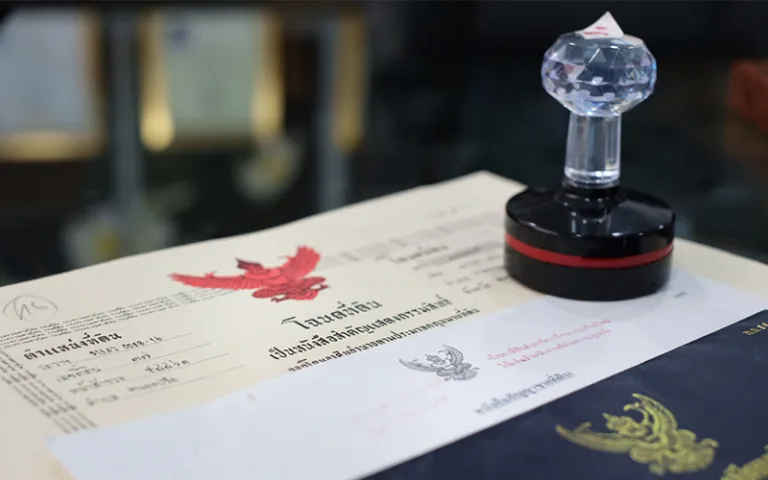THAILIVING LAW
PROPERTY LAW

Property Law
Foreign land ownership in Thailand
Land ownership in Thailand is governed by the Land Code Act and under Thai land laws only Thai nationals are allowed to own land or have a confirmed right of possession of land. Foreigners may not own land unless there is a treaty or exemption allowing the foreigner to own land in Thailand (section 86).
Thailand has currently no treaty with any country allowing a foreigner to acquire land in Thailand. Any foreigner who violates foreign land ownership restrictions could be fined and/or sent to jail for a term of up to 2 years (Land Code act section 111). Only a foreigner who qualifies under section 96 bis of the Land Code Act may own up to 1600 square meters (or 1 rai) of land for residential purposes in specified areas. Foreign land ownership under section 96 bis among other requires an investment of not less than 40 million Baht in by the BOI approved Thai bonds and assets which must be beneficial to Thai economy and requires approval by the Minister of Interior. If granted foreign land ownership under this exemption is limited to the life of the person granted the right to own the land (not transferable, not inheritable). Permission for foreign land ownership under section 96 bis Land Code Act is rarely applied for or granted. Foreign corporations operating a business in Thailand may for the duration of their business in Thailand obtain special privileges and exemptions for land ownership through the Board of Investment under section 27 of the Investment Promotion Act and under section 44 of the Industrial Estate Authority of Thailand Act or section 65 of the Petroleum Act. This exemption requires large investments and is limited to the duration of their business.Foreign condo apartment ownership in Thailand
Foreigners and foreign juristic persons may own an apartment unit in a building registered and licensed under the Thailand Condominium Act. Section 19 of this act governs foreign ownership of condos, which among others puts a limit on foreign ownership in a condo building and not more than 49% of all units in a condo project can be foreign owned.
When the aggregate floor space of all units combined is 6000 square meters 2940 square meters can be foreign owned, or in case of 100 equal apartment units in one condo building up to 49 of the units can be foreign owned, 51 or more must be Thai owned.
In addition, foreigners must qualify for ownership under section 19 which usually means that the foreigner must have brought into Thailand foreign currency at least equal to the total purchase of the condo and having exchanged this amount into Thai baht. The recipient bank inside Thailand will supply documents of the remittance and exchange of foreign currency and such proof must be submitted to the Land Department in order to register foreign ownership.
It should be noted that foreign ownership is an individual personal right of the foreigner who qualified under section 19 and therefore foreign ownership of the unit is not transferable to another foreigner unless this foreigner (including foreign heirs) also individual qualifies for ownership under section 19 of the Condominium Act.
In case foreign freehold units in a condominium project are no longer available the remaining units may be leased to foreigners. Normal hire of property laws applies to the lease of a condo by foreigners. There is no separate law issued regulating the lease or rent of condominium units by foreigners as opposed to buying a condominium.
Foreign ownership only exists in a condominium registered and licensed under the Thailand Condominium Act. Common in the tourist areas of Thailand are apartment buildings not registered and licensed as a condominium. These apartment buildings are basically like any other building and the owner can rent out parts of his building under his own terms and conditions. Unregistered apartment buildings could for example be sold as a kind of time sharing in which the units are sold through leases to many different parties each having a specified block of time during which they may use the apartment.
The information contained on our website is for general information purposes only and does not constitute legal advice. – All rights reserved Thailandlawonline

